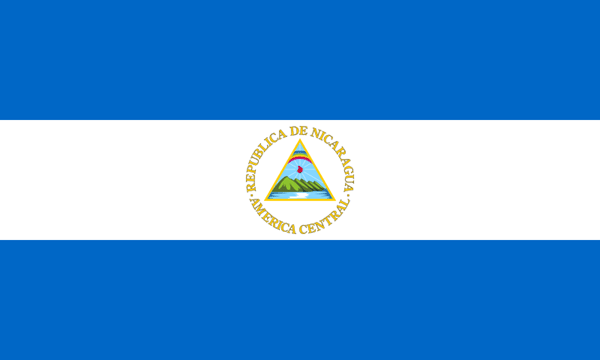Login form
Customs of Nicaragua
Marriage and Family
 The extended family exerts a major influence on an individual’s life and decisions. It is not uncommon to have parents, aunts, uncles, and cousins all living together. As in many Central and South American nations, a person has two family names. The last name is the mother’s family name, and the second-to-last name is the father’s family name, which functions as the surname. Therefore, a person named José Muñoz Gómez would be called Señor Muñoz.
The extended family exerts a major influence on an individual’s life and decisions. It is not uncommon to have parents, aunts, uncles, and cousins all living together. As in many Central and South American nations, a person has two family names. The last name is the mother’s family name, and the second-to-last name is the father’s family name, which functions as the surname. Therefore, a person named José Muñoz Gómez would be called Señor Muñoz.
Eating
Beans and rice are eaten with most meals. Maize also forms an important part of the diet. Typical dishes include tortillas, enchiladas, nacatamales (spiced meat and vegetables), mondongo (tripe and beef knuckles), and baho (meat, vegetables, and plantains). Tropical fruits are usually plentiful, and plátanos (fried plantains) are popular. A typical vegetable dish is called vigorón.
Meals are occasions for conversation in
Socializing
When meeting another person for the first time, Nicaraguans shake hands and say Mucho gusto de conocerle. (“Pleased to meet you”). They might also say ¿Cómo está Usted? or ¿Cómo estás? (both mean “How are you?” but the first is more formal). Common terms for greeting include ¡Buenos días! (“Good morning!”), ¡Buenas tardes! (“Good afternoon!”), and ¡Buenas noches! (“Good evening!”). A casual greeting, used especially among the youth, is ¡Hola! (“Hi!”). Men greet each other with a hearty handshake, and close friends hug and pat each other on the back. Among female friends, the usual greeting is a kiss on the cheek.
Elders and those of higher social standing are greeted with titles such as Señor (“Mr.”), Señora (“Mrs.”), or Señorita (“Miss”) to show respect. The titles Don and Doña are used with a man’s and a woman’s first names, respectively, to indicate special respect and familiarity or affection.
Nicaraguans are hospitable and welcome strangers. Expressions of personal admiration are valued more than compliments on one’s possessions. On special occasions, such as anniversaries, birthdays, and Catholic ceremonies such as baptism or confirmation, it is usual to bring a gift, and it is appreciated when guests invited to dinner bring a gift of flowers or candy.
Recreation
Group activities are popular, especially dancing. Baseball, the national sport, generates great enthusiasm. Soccer, boxing, softball, basketball, and volleyball are also enjoyed. Bullfights and cockfights are held in rural regions, usually on weekends and holidays or fiesta days. Celebrations honoring local patron saints are among the recreational highlights of the year.
Holidays and Celebrations
Public holidays include New Year’s Day (1 January), Easter (celebrated Holy Thursday through Easter Sunday), Labor Day (1 May), Day of the Revolution (19 July), Battle of San Jacinto (14 September), Independence Day (15 September), Feast of the Immaculate Conception (8 December), and Christmas Day (25 December). Workers also receive a half-day vacation on Christmas Eve. Numerous local holidays are held during the year.
Source: Encarta Interactive World Atlas

